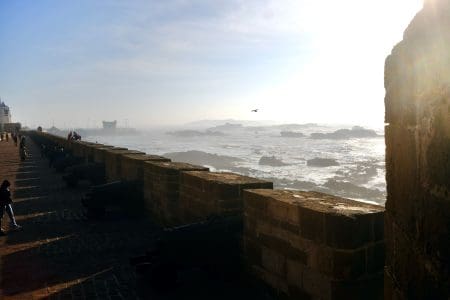Morocco, a land of vibrant colors, bustling markets, and rich cultural heritage, is also home to of the most breathtaking natural wonders – the Atlas Mountains. Nestled in the North African region, the Atlas Mountains span across Morocco, offering travelers a unique opportunity to immerse themselves in the beauty of this majestic landscape. From lush valleys to snow-capped peaks, the Atlas Mountains have something to offer for every adventurer seeking an escape from the hustle and bustle of everyday life.
Unveiling the Beauty of the Atlas Mountains
As you embark on your journey to explore the Atlas Mountains, you will be greeted by a landscape that is nothing short of awe-inspiring. The towering peaks, with their rugged slopes and snow-capped summits, create a dramatic backdrop that is a photographer’s dream come true. The Atlas Mountains are divided into three main ranges – the High Atlas, the Middle Atlas, and the Anti-Atlas – each offering its own unique charm and allure.
The High Atlas: Majestic Peaks and Charming Villages
The High Atlas range is the most famous and visited of the Atlas Mountains, drawing travelers with its majestic peaks and picturesque villages. One of the highlights of the High Atlas is Toubkal National Park, home to Mount Toubkal, the highest peak in North Africa. A hike to the summit of Mount Toubkal rewards adventurers with panoramic views of the surrounding landscape, making it a must-visit for hiking enthusiasts.
- Explore the vibrant Berber villages nestled in the High Atlas, such as Imlil and Aroumd, where you can experience traditional Moroccan hospitality and immerse yourself in the local culture.
- Visit the lush Ourika Valley, known for its cascading waterfalls and terraced fields, offering a peaceful escape from the hustle and bustle of the city.
The Middle Atlas: A Serene Sanctuary of Forests and Lakes
The Middle Atlas range provides travelers with a serene sanctuary of dense forests, pristine lakes, and charming towns. If you are a nature lover, the Middle Atlas is the perfect destination to reconnect with the beauty of the natural world.
- Explore the cedar forests of Ifrane National Park, home to a variety of wildlife including Barbary macaques and Atlas deer.
- Discover the tranquil beauty of the town of Azrou, known for its bustling markets and proximity to the famous cedar grove where the friendly Barbary apes reside.
The Anti-Atlas: A Desert Oasis in the Mountains
The Anti-Atlas range offers travelers a unique blend of mountains and desert landscapes, making it a must-visit destination for those seeking an off-the-beaten-path adventure. Explore the remote valleys and rugged canyons of the Anti-Atlas, where you can discover hidden oases and ancient Berber settlements.
- Visit the stunning Draa Valley, a lush oasis known for its date palm plantations and historic kasbahs, providing a glimpse into Morocco’s rich history and heritage.
- Embark on a desert excursion to the breathtaking Erg Chebbi dunes, where you can ride a camel through the sandy expanse and witness a mesmerizing desert sunset.
Immersing Yourself in the Local Culture
One of the most enriching aspects of visiting the Atlas Mountains is the opportunity to immerse yourself in the local culture and traditions of the Berber people, who have inhabited these mountains for centuries. The Berbers, known for their warm hospitality and vibrant cultural heritage, welcome travelers with open arms, inviting them to experience the unique customs and rituals of their ancestral homeland.
Culinary Delights: Tasting the Flavors of Morocco
Indulge your taste buds in the mouthwatering cuisine of Morocco, known for its rich flavors and aromatic spices. From hearty tagines to fragrant couscous dishes, Moroccan cuisine reflects the diverse influences of the Berber, Arab, and Andalusian culinary traditions.
- Sample traditional Berber dishes such as tajine, a slow-cooked stew of meat and vegetables, or couscous, a staple dish made from steamed semolina grains.
- Enjoy a cup of sweet mint tea, a beloved Moroccan beverage that symbolizes hospitality and friendship, as you engage in lively conversations with the locals.
Arts and Crafts: Discovering Berber Treasures
Explore the vibrant arts and crafts of the Berber people, known for their intricate designs and vivid colors. From handwoven carpets to gleaming silver jewelry, Berber artisans showcase their craftsmanship in a variety of traditional handicrafts that reflect the beauty of the Atlas Mountains.
- Visit a local souk or market to browse a wide array of handmade goods such as pottery, textiles, and leather goods, perfect for bringing home as souvenirs of your Moroccan adventure.
- Attend a traditional Berber music and dance performance, where you can witness the rhythmic beats of the drum and the graceful movements of the dancers, steeped in centuries of tradition.
Preserving the Natural Beauty of the Atlas Mountains
As more travelers flock to the Atlas Mountains to experience its natural wonders, it is important to prioritize responsible tourism practices that protect the fragile ecosystem of this pristine landscape. By respecting the environment and engaging in sustainable travel habits, we can ensure that future generations will be able to enjoy the beauty of the Atlas Mountains for years to come.
Leave No Trace: Treading Lightly on the Trails
When hiking in the Atlas Mountains, be sure to follow the principles of Leave No Trace, a set of guidelines that promote responsible outdoor recreation. Remember to stay on designated trails, pack out all of your trash, and minimize your impact on the natural environment to preserve the beauty of the mountains for future generations.
- Opt for eco-friendly accommodations that prioritize sustainability and environmental conservation, such as ecolodges and eco-friendly campsites that minimize their carbon footprint and support local communities.
- Support local conservation efforts and community initiatives that aim to protect the biodiversity of the Atlas Mountains and promote responsible tourism practices.
Respecting Local Customs and Traditions
As a guest in the Atlas Mountains, it is important to respect the customs and traditions of the Berber people, who have a deep connection to the land and a rich cultural heritage passed down through generations. By engaging with the local community in a respectful and mindful manner, you can create meaningful connections and foster mutual understanding.
- Seek guidance from local guides and tour operators who have a deep knowledge of the Atlas Mountains and can provide insights into the cultural significance of the landscape.
- Participate in cultural exchange programs and volunteer opportunities that allow you to give back to the local community and support sustainable development projects in the Atlas Mountains.
Conclusion: Embracing the Beauty of the Atlas Mountains
In conclusion, a journey to the Atlas Mountains is a transformative experience that allows travelers to immerse themselves in the natural beauty, rich culture, and warm hospitality of Morocco. From the majestic peaks of the High Atlas to the serene forests of the Middle Atlas and the desert oasis of the Anti-Atlas, the Atlas Mountains offer a diverse and captivating landscape that is sure to leave a lasting impression on all who visit.
As you explore the Atlas Mountains, be sure to engage with the local community, respect the environment, and embrace the unique traditions of the Berber people. By fostering a spirit of curiosity, respect, and mindfulness, you can create unforgettable memories and forge connections that transcend borders and cultures.
So pack your bags, lace up your hiking boots, and set off on an adventure to the Atlas Mountains – a world of wonders waiting to be discovered. Travel with an open heart and an open mind, and you will be rewarded with an experience that will stay with you long after you have returned home. Bon voyage!



